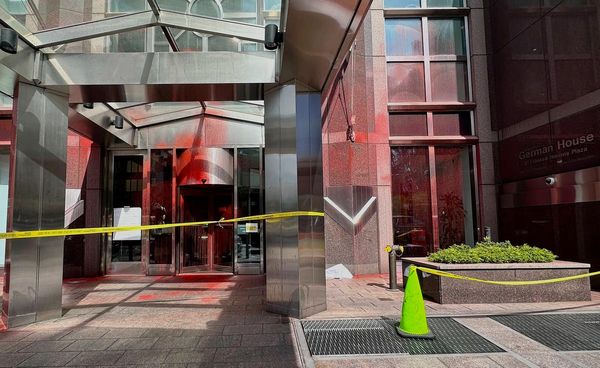LOS ANGELES — A generous but demanding electorate put Karen Bass in the Los Angeles mayor's office with the tools they believe she needs to reduce homelessness. Now they want results.
In a survey released Tuesday, nearly 89% of L.A. city voters said they expect the new mayor to reduce homelessness by at least half during her four-year term.
By approving Measure ULA, a tax on real estate transactions of more than $5 million, voters handed Bass an estimated $600 million or more annually to do that.
A majority said they think the money should lead to a decline in homelessness in two to four years, and nearly 20% thought that would happen in just a year. But more than 60% said they would support a recall if the new mayor "fails to effectively address homelessness within their first two years in office."
"What we're hearing from Angelenos is we're supporting the next leadership to do whatever it takes to solve this issue," said Miguel Santana, president and chief executive of the Weingart Foundation, which paid for the survey. "We are generous and are providing you the resources that you need ... and we're going to continue to hold you accountable. We're going to be very focused on what you deliver."
The survey was commissioned by Committee for Greater L.A., a coalition of civic leaders, to gauge the mandate for the new mayor and member of the Board of Supervisors, said Santana, the group's chair.
Santana said he saw in the answers evidence that people are increasingly willing to make sacrifices to solve a problem that touches everyone.
"This is now a universal L.A. experience," Santana said. "It's no longer certain parts of town. It's as common as sunshine, palm trees and traffic. Being an Angeleno means you witness human suffering in your daily life."
Three-fourths of respondents said they would be willing to give the mayor "full power to site housing for the homeless." On several questions regarding development, two-thirds said they would be willing to forgo some environmental restrictions and limit community input on housing and shelters, and more than 70% would support a shelter or apartment for the homeless within a mile of their homes.
"We will accept things that we would not accept before, shelter or apartments, because we don't know what happens next," said Pete White, executive director of the skid row-based Los Angeles Community Action Network, which advocates on homelessness and advised on the survey.
In the survey, 56% said they have had trouble paying rent within the past year. A survey of the entire population would probably show that figure to be much higher, said Fernando Guerra, founding director of the Thomas and Dorothy Leavey Center for the Study of Los Angeles at Loyola Marymount University, which conducted the survey of 1,309 voters.
Guerra said the center will include nonvoters in the survey early next year.
The voter survey probed people, after they voted in the November 8 election, on their understanding of the tax measure, which was generally high, and their perceptions of who is responsible for making headway on homelessness.
Respondents held the mayor most responsible (35.8%), followed by the governor (29%). Only 13.4% put the onus on the City Council.
Despite the urgency expressed for the new mayor, voters were mildly positive about departing Mayor Eric Garcetti's handling of homelessness even though the number of people living on the streets has dramatically increased during his two terms. More than 53% agreed that the Garcetti administration has "effectively addressed the issue."
Consistent with numerous past surveys, just under 80% said homelessness is "an issue in the neighborhood I live in."
Voters were generally optimistic that Measure ULA will produce results, 19.4% saying they expect to see a difference within a year and 35.3% within two to four years. Only 29% said they did not expect to see any results.
They also would be more forgiving of the measure than the mayor if improvements aren't evident: 50.4% said they would support a repeal if it "failed to effectively address homelessness within its first two years."
In a theme running through the survey, voters were mixed in their views of the county's role in addressing homelessness.
More than 95%, crossing all demographics, thought it was important for the city and county to work together, but only 10.6% held the Board of Supervisors most accountable. On the question of who is most responsible, 62% said the mayor, 38% the supervisors.
Similarly, while more than 80% said the Los Angeles County Sheriff "has an important role to play in addressing the homelessness crisis," fewer than 4% thought he was "most accountable."
Fewer than half of respondents (47.9%) understood that ULA, a tax on city residents for city spending, dedicated no funds for mental illness, which is primarily a county responsibility.
Other than that, voters had a detailed knowledge of the tax measure, with about 60% saying they understood its basics. More than 56% said they knew a 15-member paid oversight committee would be established and that "the General Manager of the LA Housing Department, and not the mayor, would be the chief administrator of these funds."
In a sign of strong, if not entirely consistent, desire for change, more than 81% said they would support a reduction in bureaucratic processes while 67% said they "would support some elected officials having less oversight on spending."
———







